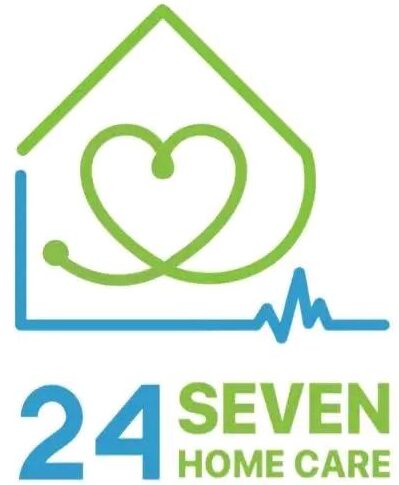Patient Right And Responsibilities, At Doctor On Call Home Health treatment in Sharjah, our overarching mission revolves around providing patients with expert, compassionate medical care within the familiar surroundings of their homes. We believe that offering healthcare services in this manner not only enhances convenience but also promotes a sense of comfort and well-being for our patients.
Central to the success of our mission is the cultivation of a positive and productive care experience. This entails a mutual understanding and adherence to the rights and responsibilities that both patients and caregivers possess. By acknowledging and respecting these rights and obligations, we can ensure a harmonious partnership as we embark on this journey together.
Patients have the right to expect quality medical care delivered with professionalism and empathy. This encompasses timely visits from healthcare providers, clear communication regarding treatment plans and medications, and respect for their privacy and dignity. Additionally, patients have the responsibility to actively participate in their own care, which may involve adhering to prescribed treatments, communicating openly about their health concerns, and providing accurate medical history information.
On the other hand, caregivers are entrusted with the responsibility of providing skilled and compassionate care to patients. This includes maintaining competence in their field, respecting patients’ autonomy and preferences, and upholding confidentiality standards. Moreover, caregivers must ensure a safe and comfortable environment for patients during their visits, while also fostering open communication and addressing any concerns or questions that may arise.
By upholding these rights and obligations, Doctor On Call Home Health treatment in Sharjah aims to foster a collaborative and supportive care environment where the well-being of our patients remains paramount. Together, we strive to achieve optimal health outcomes and enhance the overall quality of life for those under our care.

Our Patient Right And Responsibilities in Doctor On Call
Embarking on a partnership between patients, caregivers, and healthcare professionals within the sphere of Doctor On Call Home Health Care is a pivotal step towards fostering an environment grounded in mutual respect, trust, and the delivery of high-quality care. In recognizing and upholding the rights and responsibilities inherent in this collaborative journey, we lay the foundation for a harmonious and effective healthcare experience.
At Doctor On Call Home Health Care in Sharjah, our unwavering commitment lies in safeguarding your well-being and ensuring your comfort at every juncture of your healthcare journey. Whether you are a patient seeking assistance, a caregiver providing support, or a healthcare professional delivering care, our ethos revolves around prioritizing your needs and striving for excellence in service delivery.
Central to this partnership is the acknowledgment of the rights afforded to patients, which encompass fundamental aspects such as dignity, privacy, and informed decision-making. Likewise, caregivers and healthcare professionals are entrusted with the responsibility to uphold these rights while delivering care that is compassionate, respectful, and tailored to individual needs.
By embracing these rights and responsibilities, we not only cultivate an environment where patients feel empowered and valued but also foster a collaborative dynamic where caregivers and healthcare professionals can work synergistically to optimize health outcomes. This synergy forms the cornerstone of our approach at Doctor On Call Home Health Care, where teamwork, empathy, and dedication converge to provide holistic and patient-centered care.
In essence, our partnership transcends the conventional boundaries of healthcare delivery, emphasizing the importance of mutual understanding, communication, and shared decision-making. Together, we embark on a journey where each individual—be it patient, caregiver, or healthcare professional—plays a vital role in shaping the trajectory of one’s health and well-being. Through collective effort and commitment, we endeavor to uphold the highest standards of care, ensuring that every individual receives the attention, respect, and support they rightfully deserve.
Patient Rights & Responsibilities Tasks:
Dignity & Respect:
Every patient deserves to be treated with dignity and respect in every aspect of their healthcare journey. This fundamental principle underscores the importance of recognizing the inherent worth and humanity of each individual. Healthcare providers and caregivers must uphold this standard by honoring patients’ cultural and personal preferences while communicating with empathy and consideration. By fostering an environment of mutual respect, patients feel valued and empowered in their healthcare interactions.
Making Informed Decisions:
Empowering patients with knowledge is essential for promoting autonomy and informed decision-making. Patients have the right to receive comprehensive information about their illness, available treatment options, potential risks, and benefits in a manner that is easily understandable. In instances where patients are capable, they should actively participate in the decision-making process regarding their care. This collaborative approach ensures that patients are equipped to make choices aligned with their values, preferences, and goals.
Care Quality:
Access to high-quality healthcare is a fundamental entitlement for every patient. In Dubai, healthcare regulatory authorities establish stringent standards to safeguard the well-being of patients. These standards encompass the delivery of safe, effective, and evidence-based medical interventions performed by qualified and competent healthcare professionals. Upholding these standards ensures that patients receive optimal care that adheres to best practices, promoting positive health outcomes and patient satisfaction.
Care Continuity:
Seamless transitions between different levels of care are imperative for ensuring the holistic well-being of patients. Whether moving from hospitalization to home-based care or transitioning between various caregivers, continuity of care is paramount. Effective communication and coordination among healthcare teams facilitate smooth transitions, minimizing disruptions and ensuring that patients receive consistent and uninterrupted care. By prioritizing care continuity, healthcare providers enhance patient safety, satisfaction, and overall health outcomes.

Pain management is a fundamental aspect of healthcare, entailing the obligation of healthcare providers to ensure patients receive appropriate evaluation and treatment for pain and discomfort. Central to this principle is the acknowledgment that the comfort and overall wellbeing of patients should always remain paramount in the minds of caregivers. By prioritizing patient comfort, caregivers can foster an environment conducive to healing and recovery, while also upholding the dignity and autonomy of those under their care.
Within the realm of pain management, patients retain the right to make decisions regarding their treatment. This includes the freedom to refuse or discontinue therapy if they so choose, provided they are fully informed of the potential consequences of their decision. In honoring the principle of patient autonomy, caregivers must respect the choices made by patients regarding their treatment, offering them the necessary information and support to make informed decisions about their healthcare journey.
However, alongside respecting patient autonomy, caregivers also bear the responsibility of ensuring that patients understand the implications of refusing or discontinuing treatment. This may involve discussing alternative options, potential risks, and the potential impact on their overall health and wellbeing. Through open and transparent communication, caregivers can empower patients to make decisions aligned with their values and preferences, while also promoting their best interests in terms of pain management and overall healthcare outcomes.
In essence, the principles of pain management and treatment refusal underscore the importance of a patient-centered approach to healthcare. By prioritizing patient comfort, autonomy, and informed decision-making, caregivers can cultivate a therapeutic partnership that honors the unique needs and preferences of each individual under their care. In doing so, they uphold the principles of compassion, respect, and dignity that lie at the heart of effective pain management and patient-centered care.
Privacy and confidentiality are paramount in the realm of healthcare, where patient information is held to the strictest standards of confidentiality under privacy laws. It is imperative that patients trust that their personal and medical details are safeguarded with the utmost care. This trust forms the foundation of the patient-provider relationship and is essential for ensuring open communication and effective treatment.
Patients possess the fundamental right to expect that their sensitive information remains confidential. Whether it’s medical history, test results, or treatment plans, the disclosure of such data should adhere to stringent protocols designed to protect patient privacy. This commitment extends to all individuals involved in the healthcare process, from doctors and nurses to administrative staff, who must handle patient information with discretion and respect for privacy laws.
Furthermore, access to medical records is not only a patient’s right but also a crucial aspect of their healthcare journey. Patients should be empowered to access their medical records, comprehend them, and if necessary, request corrections or updates. This access fosters transparency and empowers patients to actively participate in their care decisions. By understanding their medical history and treatment plans, patients can collaborate more effectively with their healthcare providers, leading to better health outcomes.
Open communication regarding medical records is essential for maintaining trust and ensuring quality care. When patients feel confident that their confidentiality is protected and that they have full access to their medical information, they are more likely to engage proactively in their healthcare journey. This transparency promotes a collaborative approach between patients and healthcare providers, ultimately leading to better-informed decisions and improved health outcomes for all involved parties.
1. Schedule Doctor Visit At Your Doorstep
Call us and Get Premium and Affordable Medical Treatment in The Comfort of Your Home or Hotel Room
2. Swift Arrival Time After Your Call
The Required Registered and Highly Trained Medical Team Will Arrive Your Place Within 30 Minutes
3. Diagnosis & Treatment
Get Better and Recovered At The Comfort Your Home, Hotel Room or Workplace



